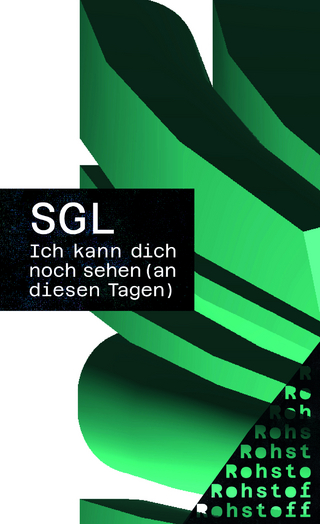
Terrorist, English edition
Ballantine (Verlag)
978-0-345-49875-5 (ISBN)
- Titel ist leider vergriffen;
keine Neuauflage - Artikel merken
The terrorist of John Updike's title is eighteen-year-old Ahmad Ashmawy Mulloy, the son of an Irish American mother and an Egyptian father who disappeared when he was three. Devoted to Allah and to the Qur'an as expounded by the imam of his neighborhood mosque, Ahmad feels his faith threatened by the materialistic, hedonistic society he sees around him in the slumping New Jersey factory town of New Prospect. Neither Jack Levy, his life-weary guidance counselor at Central High, nor Joryleen Grant, his seductive black classmate, succeeds in diverting Ahmad from what the Qur'an calls the Straight Path. Now driving a truck for a local Lebanese furniture store - a job arranged through his imam - Ahmad thinks he has discovered God's purpose for him. But to quote the Qur'an: Of those who plot, God is the best.
From the Trade Paperback edition.
John Updike was born in 1932, in Shillington, Pennsylvania. He graduated from Harvard College in 1954 and spent a year in Oxford, England, at the Ruskin School of Drawing and Fine Art. From 1955 to 1957 he was a member of the staff of The New Yorker and since 1957 has lived in Massachusetts. His novels have won the Pulitzer Prize, the National Book Award, the American Book Award, the National Book Critics Circle Award, the Rosenthal Award, and the Howells Medal. From the Hardcover edition.
" Terrorist leaves the reader ripping through the book to its finale, desperate to find out what happens. . . . [A] compelling and surprising ride." - USA Today
"A chilling tale that is perhaps the most essential novel to emerge from September 11." - People (Critic's Choice)
"Riveting . . . emotionally daring . . . Updike's ability to get inside the mind of his Ahmad . . . is what renders the novel credible and sometimes wrenching in its authenticity." - The Boston Globe
I Devils , Ahmad thinks. These devils seek to take away my God. All day long, at Central High School, girls sway and sneer and expose their soft bodies and alluring hair. Their bare bellies, adorned with shining navel studs and low-down purple tattoos, ask, What else is there to see? Boys strut and saunter along and look dead-eyed, indicating with their edgy killer gestures and careless scornful laughs that this world is all there is - a noisy varnished hall lined with metal lockers and having at its end a blank wall desecrated by graffiti and roller-painted over so often it feels to be coming closer by millimeters. The teachers, weak Christians and nonobservant Jews, make a show of teaching virtue and righteous self-restraint, but their shifty eyes and hollow voices betray their lack of belief. They are paid to say these things, by the city of New Prospect and the state of New Jersey. They lack true faith; they are not on the Straight Path; they are unclean. Ahmad and the two thousand other students can see them scuttling after school into their cars on the crackling, trash-speckled parking lot like pale crabs or dark ones restored to their shells, and they are men and women like any others, full of lust and fear and infatuation with things that can be bought. Infidels, they think safety lies in accumulation of the things of this world, and in the corrupting diversions of the television set. They are slaves to images, false ones of happiness and affluence. But even true images are sinful imitations of God, who can alone create. Relief at escaping their students unscathed for another day makes the teachers' chatter of farewell in the halls and on the parking lot too loud, like the rising excitement of drunks. The teachers revel when they are away from the school. Some have the pink lids and bad breaths and puffy bodies of those who habitually drink too much. Some get divorces; some live with others unmarried. Their lives away from the school are disorderly and wanton and self-indulgent. They are paid to instill virtue and democratic values by the state government down in Trenton, and that Satanic government farther down, in Washington, but the values they believe in are Godless: biology and chemistry and physics. On the facts and formulas of these their false voices firmly rest, ringing out into the classroom. They say that all comes out of merciless blind atoms, which cause the cold weight of iron, the transparency of glass, the stillness of clay, the agitation of flesh. Electrons pour through copper threads and computer gates and the air itself when stirred to lightning by the interaction of water droplets. Only what we can measure and deduce from measurement is true. The rest is the passing dream that we call our selves. Ahmad is eighteen. This is early April; again green sneaks, seed by seed, into the drab city's earthy crevices. He looks down from his new height and thinks that to the insects unseen in the grass he would be, if they had a consciousness like his, God. In the year past he has grown three inches, to six feet - more unseen materialist forces, working their will upon him. He will not grow any taller, he thinks, in this life or the next. If there is a next, an inner devil murmurs. What evidence beyond the Prophet's blazing and divinely inspired words proves that there is a next? Where would it be hidden? Who would forever stoke Hell's boilers? What infinite source of energy would maintain opulent Eden, feeding its dark-eyed houris, swelling its heavy-hanging fruits, renewing the streams and splashing fountains in which God, as described in the ninth sura of the Qur'an, takes eternal good pleasure? What of the second law of thermodynamics? The deaths of insects and worms, their bodies so quickly absorbed by earth and weeds and road tar, devilishly strive to tell Ahmad that his own death will be just as small and final
| Sprache | englisch |
|---|---|
| Maße | 106 x 172 mm |
| Gewicht | 158 g |
| Themenwelt | Literatur ► Zweisprachige Ausgaben ► Deutsch / Englisch |
| Schlagworte | Englisch; Romane/Erzählungen • Terrorismus; Romane/Erzählungen |
| ISBN-10 | 0-345-49875-5 / 0345498755 |
| ISBN-13 | 978-0-345-49875-5 / 9780345498755 |
| Zustand | Neuware |
| Haben Sie eine Frage zum Produkt? |
aus dem Bereich


